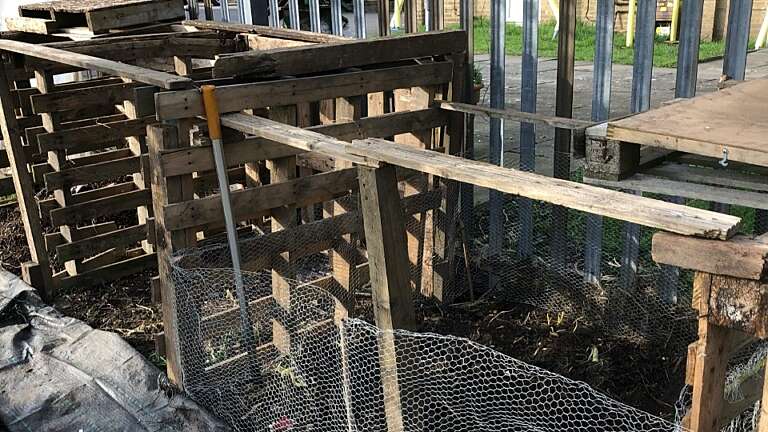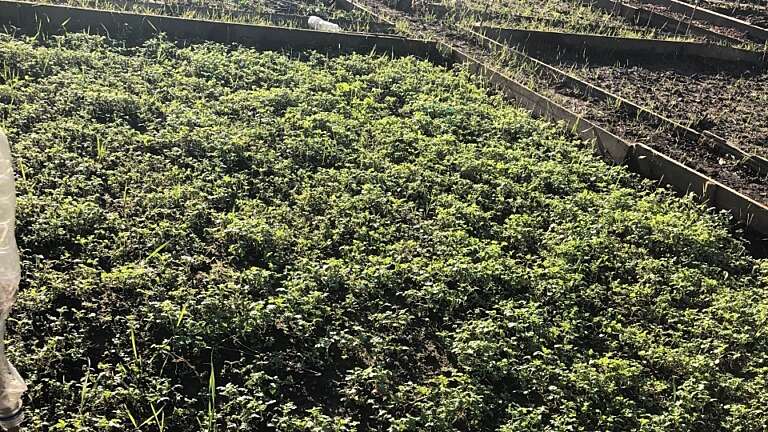Chris Collins on…nurturing your soil

It’s that time of year when gaps start opening up on my plot - potatoes are being lifted, my onion stock is running down, and the beets are ready to pull. Although I’m busy resowing crops, I always keep an eye on empty areas of soil that are not being used. Exposed soil can leach nutrients and become structurally damaged by rain and wind.
This is one of those times I’m not overly concerned if the empty ground is taken over by wild plants. I’ll keep an eye on them to prevent them setting too much seed, but their presence does an important job. Their roots keep the soil aerated, help it to drain properly and the crowns protect the soil surface from the excesses of wind and rain.
Sowing a living manure
I do have another trick up my sleeve, which greatly aids soil health, and that’s to thickly broadcast a green manure crop. This germinates quickly and will protect the soil throughout the winter on any growing space I leave fallow. In the spring, I will fork in my green manure plants adding vital organic matter to the soil.
There are many types of green manure to use but I prefer mustard seed. The secret to success with this plant is to fork it in while the foliage is nice and soft and nowhere near a flowering stage. Flowering plants tend to be much pithier and break down more slowly. If you’re an ardent practitioner of no-dig and forking or digging is not desirable, hoeing off your green manure plants and leaving them to break down on the soil surface is another option. But again, do this while the plants are soft and tender.
Keep off the soil
We’ve come a long way with our understanding of soil science in recent years and hence many gardeners are now practicing the no-dig method. On the whole, I try not to disturb my substrate and the worms are far more effective cultivators than my clumping boots and tools. Though I’ll admit to getting the fork out for those heavy pernicious weeds.
It’s not just no-dig that's important - keeping boots off wet soil is also crucial. Trampling on soaked soil causes damage to structure and compaction, so stand on old scaffold boards or planks to help spread your weight and lessen the impact. It’s worth saying this is good practice in all weather conditions. Remember the soil is king (or queen) so treat it accordingly.
Making more of the good stuff
I cannot mention soil wellbeing without mentioning the centrepiece of organic gardening: composting. Using all your spent materials to create good organic matter is one of life’s miracles and is the key to success in the garden or allotment. I have three bays. One is for hot composting that I turn and irrigate regularly. The next is a cold compost bin that takes a bit longer but is a completely natural process. And finally, a leaf composting bay for all those leaves I’ve collected over 18 months. Now they’ve broken down, I’ll be using them to mulch many of my currents crops during August to lessen irrigation and maintain soil structure. They will even help prevent diseases such as mildew.
Happy gardening, Chris
